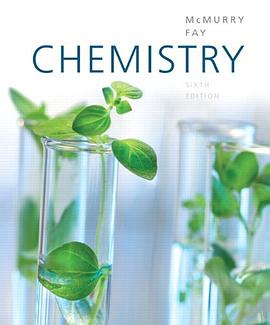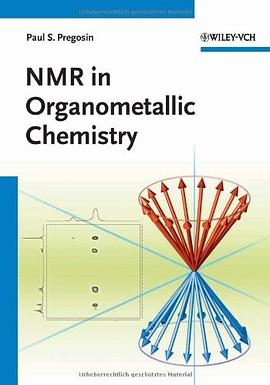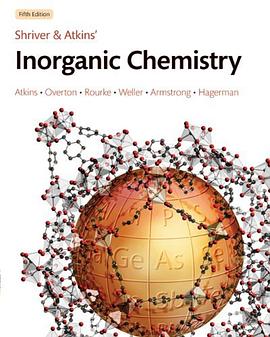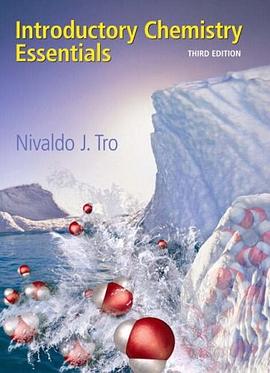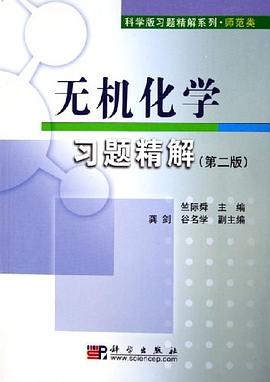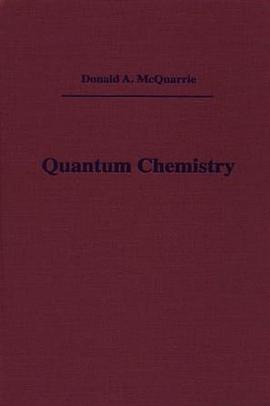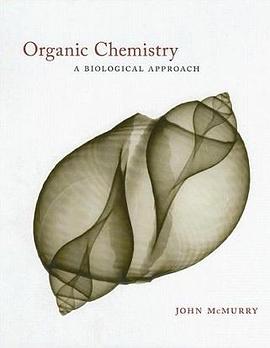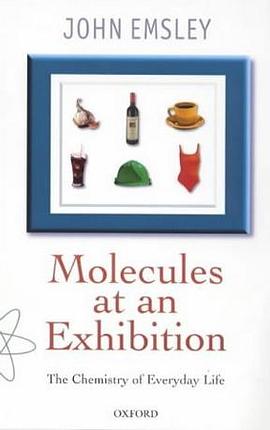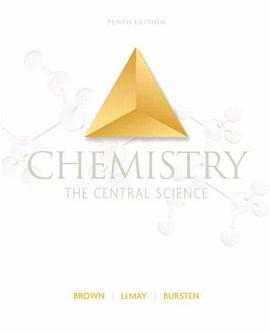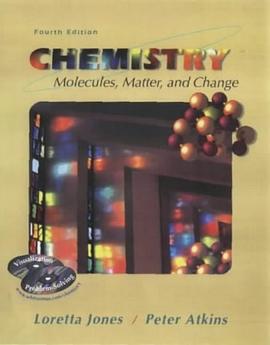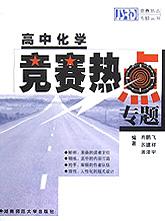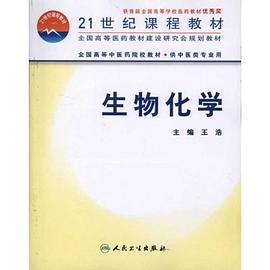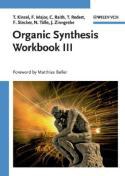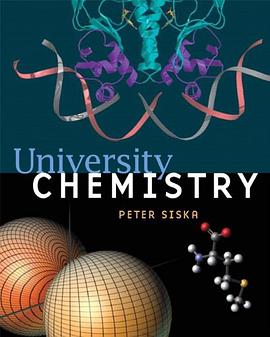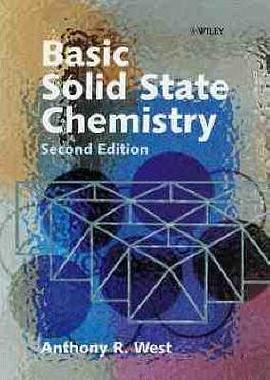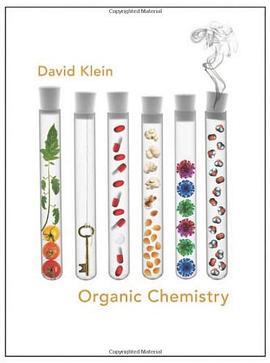

具体描述
Students often say, “I studied 40 hours for this exam and I still didn’t do well. Where did I go wrong?” Most instructors hear this complaint every year. In many cases, it is true that the student invested countless hours, only to produce abysmal results. Often, inefficient study habits are to blame. The important question is: why do so many students have difficulty preparing themselves for organic chemistry exams? There are certainly several factors at play here, but perhaps the most dominant factor is a fundamental disconnect between what students learn and the tasks expected of them. To address the disconnect in organic chemistry instruction, David Klein has developed a textbook that utilizes a skills-based approach to instruction. The textbook includes all of the concepts typically covered in an organic chemistry textbook, but special emphasis is placed on skills development to support these concepts. This emphasis upon skills development will provide students with a greater opportunity to develop proficiency in the key skills necessary to succeed in organic chemistry. As an example, resonance structures are used repeatedly throughout the course, and students must become masters of resonance structures early in the course. Therefore, a significant portion of chapter 1 is devoted to drawing resonance structures. Two chapters (6 and 12) are devoted almost entirely to skill development. Chapter 6 emphasizes skills that are necessary for drawing mechanisms, while chapter 12 prepares the student for proposing syntheses. In addition, each chapter contains numerous Skillbuilders, each of which is designed to foster a specific skill. Each skillbuildercontains three parts: 1. Learn the Skill : a solved problem that demonstrates a particular skill; 2. Practice the Skill: numerous problems (similar to the solved problem) that give the students an opportunity to practice and master the skill; 3. Apply the Skill: one or two more-challenging problems in which the student must apply the skill in a slightly different environment. These problems include conceptual, cumulative, and applied problems that encourage students to think out of the box. Sometimes problems that foreshadow concepts introduced in later chapters are also included. All SkillBuilders are visually summarized at the end of each chapter (Skillbuilder review), followed by a list of suggested in-chapter and end-of-chapter practice problems. Q&A with David Klein, author of Organic Chemistry 1E
Author David Klein
How does your method of teaching Organic Chemistry differ from other approaches and other texts?
Current organic chemistry textbooks provide students with extensive coverage of reactions and the principles that govern those reactions. But it is often expected that students will independently develop the necessary skills for solving problems. Organic chemistry is much like bicycle riding. It requires constant practice of very specific skills. In order to ace an organic chemistry exam, students must certainly understand the reactions and principles, but more importantly, students must learn to become proficient at approaching new situations methodically, based on a repertoire of skills. To address this need, I have developed a textbook that utilizes a skills-based approach. My textbook includes all concepts typically covered in an organic chemistry textbook, but special emphasis is placed on skills development to support those concepts. This emphasis provides students with a greater opportunity to develop proficiency in the key skills necessary to succeed in organic chemistry.
Your previous supplement titles ( Organic Chemistry I & II as a Second Language ) have been well received. How does that make you feel and how did that inspire you to write your own Organic Chemistry textbook?
When I wrote my first supplement, Organic Chemistry as a Second Language , I wasn’t sure if it would resonate in the market. So you can imagine how excited I was from the wonderful student responses and the large adoption list. I was so thrilled to read the great reviews posted by students on Amazon.com. It really meant a lot to me that they took the time to write such wonderful comments. It was also so gratifying to receive unsolicited emails from students and instructors across the country, expressing appreciation for my books. It meant so much to me because I understand that people are busy and it means a lot that they invested the time to reach out to me. It makes me feel GREAT to know that my approach has made such a positive impact.
How did you become interested in Organic Chemistry?
As an undergraduate student, I did not declare a major in my freshman year, but in my sophomore year, I had the fortune of taking an organic chemistry class from a truly gifted instructor, Professor Lawrence Principe. He made organic chemistry fun and interesting for me, and he inspired me to follow in his footsteps and teach organic chemistry. I believe that every corner of this universe is fascinating, if you have the right teacher who can show you how fascinating it is. If you think about, you will probably find that the subjects that you enjoy are the subjects for which you had a good teacher. And the subjects you dislike are the subjects for which you had a bad teacher. In short, teachers have a profound impact on their students, and it has always been my goal to inspire my students the way my mentor inspired me.
What do you see as the future of Organic Chemistry? Are there any exciting developments on the way?
Organic chemistry occupies a central role in the world around us, as we are surrounded by organic compounds. The food that we eat and the clothes that we wear are comprised of organic compounds. Our ability to smell odors or see colors results from the behavior of organic compounds. Pharmaceuticals, pesticides, paints, adhesives, and plastics are all made from organic compounds. In fact, our bodies are constructed mostly from organic compounds (DNA, RNA, proteins, etc.) whose behavior and function are determined by the guiding principles of organic chemistry. The responses of our bodies to pharmaceuticals are the results of reactions guided by the principles of organic chemistry. A deep understanding of those principles enables the design of new drugs that fight disease and improve the overall quality of life and longevity. As time marches forward, we can expect to see great developments and achievements in all of these exciting fields.
How many boards have you broken at one time in your Tae Kwon Do classes?
For my black belt test, I had to break three boards with my fist, three with a side kick, and three more with an elbow. I was given a total of three seconds during which time I had to break all nine boards, and it was exhilarating!
David Klein is a lecturer at Johns Hopkins University where he teaches Organic and General Chemistry. He is a dynamic and creative teacher and uses analogy to help students grasp difficult topics. Klein’s unique informal voice and manner of presentation help students truly master key topics in this course. He is also the author of Organic Chemistry as a Second Language and General Chemistry as a Second Language , which have both been highly successful.
作者简介
目录信息
读后感
评分
评分
评分
评分
用户评价
拿到《Organic Chemistry》这本书,我首先被它精美的装帧和清晰的版式所吸引。封面设计简洁大气,内页排版疏朗有致,阅读起来非常舒适。我最喜欢的部分是关于“芳香族化合物”的章节。作者并没有一开始就讲解复杂的芳香性理论,而是从苯的结构和性质入手,逐步引入了亲电取代反应的机理。他通过非常生动形象的比喻,将苯环上的π电子云比作一个“电子海洋”,亲电试剂则如同“小船”,寻找攻击的“港湾”。这种通俗易懂的解释,让我很快就理解了芳香性的概念。而且,书中对于各种取代基对苯环反应活性的影响,也做了非常细致的分析。作者通过列举大量的实例,让我能够清晰地看到,活化基团如何增强苯环的亲电取代能力,而钝化基团又如何削弱这种能力。我曾经在记忆这些取代基的效应时感到困难,但是通过这本书的讲解,我能够从电子效应和空间位阻的角度,去理解它们的影响,从而做到举一反三。此外,书中对于“杂环化合物”的介绍也让我耳目一新。作者不仅仅是列举了几种常见的杂环化合物,比如吡啶、呋喃、噻吩等,还深入分析了它们独特的结构和反应性。让我印象深刻的是,作者在讲解吡啶的亲电取代反应时,强调了氮原子的吸电子效应,导致吡啶环的反应活性比苯环要低。这种对细节的关注,让我能够更深入地理解杂环化合物的化学性质。
评分坦白说,我曾经对有机化学有一种“敬畏”感,总觉得它高深莫测,难以企及。《Organic Chemistry》这本书,则彻底改变了我的看法。它的语言风格非常平实,但又不失学术的严谨性。作者在讲解每一个概念时,都会从最基本的生活现象入手,让你感受到有机化学与我们生活息息相关。例如,在讲解“烯烃的加成反应”时,作者会从水果的成熟过程,或者塑料的制造过程来引入,让你在熟悉的语境中理解抽象的化学反应。我尤其喜欢书中关于“羰基化合物”的章节,作者将醛、酮、羧酸及其衍生物的各种反应,进行了一个非常系统性的梳理。他不仅仅是罗列了反应式,更是深入分析了羰基的极性,以及亲核试剂进攻羰基碳的机理。让我印象深刻的是,作者在讲解“费歇尔酯化反应”时,不仅仅是给出了反应式,更是详细分析了反应的平衡性,以及如何通过控制反应条件来提高产率。此外,书中对于“谱学在有机化学中的应用”也做了非常详尽的介绍,包括核磁共振谱、红外光谱、质谱等等。作者通过大量的实际谱图,并且结合具体的分子结构,让我能够清晰地理解,如何通过谱图信息来推断分子的结构。这种实用性的讲解,极大地激发了我学习的兴趣。
评分我一直觉得,学习有机化学就像是在解谜,而《Organic Chemistry》这本书,则是我手中的那把关键的钥匙。它的排版设计非常人性化,大量的公式和反应式都清晰地标注了名称和结构,并且使用了不同的颜色来区分不同的原子和官能团,这极大地减轻了阅读的负担。我最喜欢的部分是关于“取代反应”的讲解,作者将SN1和SN2反应的机理,以及E1和E2反应的机理,通过精美的图示和详细的文字解释,进行了一个非常清晰的对比。他不仅仅是列出了反应条件和产物,更是深入分析了影响反应速率和选择性的各种因素,比如底物的结构、亲核试剂的性质、离去基团的能力等等。我曾经在理解这些细微的差别时感到困惑,但是通过这本书的讲解,我能够清晰地分辨出各种反应的特点,并且能够预测在不同条件下,哪种反应更容易发生。而且,这本书对于“环状化合物”的立体化学也做了非常详尽的介绍,特别是关于椅式构象和船式构象的能量差异,以及取代基在不同构象中的稳定性。作者通过绘制各种构象图,并且详细分析了各种非键相互作用,让我能够直观地理解,为什么某些构象会更加稳定。这种细致入微的讲解,让我对有机化学有了更深刻的认识。
评分如果要用一个词来形容《Organic Chemistry》这本书,那一定是“通透”。作者以一种极其清晰和透彻的方式,将有机化学的原理展现在读者面前。我最喜欢的部分是关于“官能团反应性”的讲解。作者并没有孤立地讲解每一个官能团的性质,而是将它们放在一个相互关联的体系中进行阐述。例如,在讲解“醇”的反应时,作者会将其与醚、醛、酮、羧酸等官能团的反应进行对比,并且分析它们之间在反应性上的异同。让我印象深刻的是,作者在讲解“胺”的反应时,详细分析了伯胺、仲胺和叔胺的碱性和亲核性,以及它们在不同反应中的行为。他通过列举大量的实例,让我能够清晰地理解,为什么胺类化合物会表现出如此多样的化学性质。此外,书中对于“反应动力学和热力学”的介绍也让我有了更深刻的理解。作者不仅仅是给出了反应速率常数和平衡常数等概念,更是深入分析了它们是如何影响反应的进程和产物的选择性的。让我印象深刻的是,作者在讲解“活化能”时,用了一个非常形象的比喻,将反应过程比作翻越一座山,活化能就是山的高度,翻越这座山需要多少能量。这种直观的解释,让我能够轻松地理解抽象的动力学概念。总而言之,这本书让我对有机化学的理解,达到了一个前所未有的高度。
评分对于我这样一个在有机化学领域摸爬滚打多年的“老兵”来说,找到一本能够真正让我眼前一亮的书并不容易。《Organic Chemistry》这本书,虽然名字听起来很普通,但它在内容的深度和广度上,都给我带来了意想不到的惊喜。它的叙述方式非常严谨,但又不失细腻,作者对于每一个反应机理的阐述,都力求做到逻辑严密,并且能够追溯到最根本的电子流动和能量变化。我尤其欣赏书中对于“自由基反应”的讲解,作者不仅仅是列举了几种常见的自由基反应,而是深入分析了自由基的生成、传播和终止的机理,并且通过一些经典的自由基反应例子,比如烷烃的卤代,让我清晰地看到了自由基在反应中的作用。书中对于“官能团转化”的梳理也做得非常出色,它并没有将各种反应孤立地呈现,而是将相似的反应归类,并且强调了不同官能团之间的相互影响和转化关系。我曾经在准备某个考试时,对各种官能团之间的互变感到非常头疼,但是看了这本书之后,我发现自己能够清晰地理解,为什么一个基团会发生某种转化,以及这种转化会带来什么样的后果。此外,这本书在引入一些高级概念时,也做得非常到位,比如在讲解“芳香性”的时候,作者不仅仅是给出了Hückel规则,还通过对苯环结构的深入分析,解释了为什么苯环具有特殊的稳定性。这种深度挖掘,让我不仅仅是记住一个规则,而是真正理解其背后的原理。
评分我必须说,《Organic Chemistry》这本书在知识的组织和呈现上,做得相当出色。它以一种非常系统化的方式,将有机化学的知识点串联起来,形成一个完整的知识网络。我最欣赏的部分是关于“芳香族亲电取代反应”的讲解。作者不仅仅是列举了卤代、硝化、磺化、傅-克烷基化和傅-克酰基化等几种常见的反应,而是深入分析了它们的通用机理,并且详细介绍了每一步反应的电子转移过程。让我印象深刻的是,作者在讲解傅-克反应时,特别指出了反应的局限性,比如在活化基团存在时,反应会发生在取代基的邻位或对位;在钝化基团存在时,反应会发生在间位。这种对反应细节的把握,让我能够更加准确地预测反应的产物。此外,书中对于“有机合成策略”的介绍也让我受益匪浅。作者不仅仅是给出了各种合成反应,而是教导我们如何运用这些反应来设计复杂的有机分子合成路线。他通过一些经典的合成案例,比如阿司匹林的合成、紫杉醇的合成等,让我们看到了有机合成的魅力和挑战。让我印象深刻的是,作者在讲解合成路线设计时,强调了“逆合成分析”的方法,即从目标分子出发,一步步回溯,寻找可行的前体,直到回到简单的起始原料。这种思考方式,极大地提升了我解决合成问题的能力。
评分在我看来,《Organic Chemistry》这本书就像是一个精心设计的有机化学知识迷宫,而作者就像是一位经验丰富的向导,引导着我们一步步解开谜题。这本书最大的优点在于,它将理论知识与实践应用巧妙地结合在了一起。在讲解每一个重要的反应时,作者都会穿插一些实际的例子,比如药物的合成、高分子的制备等等,让你感受到有机化学在现实世界中的巨大价值。我尤其欣赏书中关于“不对称合成”的章节,作者不仅介绍了各种不对称催化剂的类型,还深入分析了它们是如何诱导立体选择性的。特别是对于一些手性药物的合成路线,作者进行了详细的讲解,让我看到了有机化学在医药研发领域的重要作用。另外,书中对于“有机金属试剂”的讲解也非常到位,作者不仅仅是列举了几种常见的有机金属试剂,比如格氏试剂和有机锂试剂,还深入分析了它们的反应活性和应用范围。我曾经因为对这些试剂的反应性感到困惑,但是看了这本书之后,我能够清晰地理解,它们是如何作为碳负离子的来源,参与到各种碳-碳键的形成反应中。这种理论与实践相结合的讲解方式,让我对有机化学的学习充满了动力。
评分拿到这本《Organic Chemistry》的时候,我其实是带着一种复杂的心情。一方面,我内心深处对有机化学这门学科的迷恋从未减退,那些奇妙的分子结构,那些精巧的反应机理,总是让我觉得像是探索一个隐藏在日常物质背后的微观宇宙。另一方面,我也深知有机化学的“难度系数”,坊间流传的各种关于啃下这本书的“血泪史”早已耳熟能详。翻开第一页,跃入眼帘的是清晰而富有逻辑的排版,纸张的质感也很不错,不会显得过于廉价。我尤其喜欢书中在介绍某个重要概念时,会穿插一些生动形象的比喻,比如将烷烃比作一串串灵活的项链,碳链的弯曲和扭转就像是项链的各种形态,这一下子就拉近了我和抽象概念之间的距离。而且,书中的插图质量非常高,色彩鲜艳,结构清晰,特别是那些表示反应机理的箭头流动,简直就像是一部微型动画,让我能够清晰地追踪电子的每一次迁移动作,理解反应是如何发生的。在学习过程中,我发现这本书并没有一开始就丢给我一大堆枯燥的理论,而是循序渐进,从最基础的原子结构、化学键讲起,然后逐步深入到官能团的性质,再到各类有机反应。这种安排非常适合我这种基础不太牢固的读者,让我能够一步一个脚印地去构建自己的知识体系。我特别欣赏作者在解释一些复杂反应时,会反复强调关键的电子转移路径和中间体的稳定性,并且会用不同的角度去阐述同一个概念,有时候会从热力学解释,有时候会从动力学角度分析,这样一来,我就可以从多个维度去理解反应的本质,而不只是死记硬背。总而言之,这本书给我留下了非常深刻的第一印象,我迫不及待地想要沉浸其中,去揭开有机化学的神秘面纱。
评分《Organic Chemistry》这本书,在我看来,不仅仅是一本教科书,更像是一本引人入胜的“化学故事集”。作者用一种非常叙事化的方式,将枯燥的化学反应讲述得活灵活现。我尤其喜欢书中关于“氧化还原反应”的章节。作者并没有仅仅是给出氧化剂和还原剂的列表,而是深入分析了各种氧化还原反应的机理,并且通过一些实际的例子,比如煤炭燃烧、食物消化等,让你感受到氧化还原反应在我们生活中的普遍性。我曾经在理解一些复杂的氧化还原反应时感到困惑,但是看了这本书之后,我能够从电子得失的角度,清晰地理解反应的进程。让我印象深刻的是,作者在讲解“醇的氧化”时,详细分析了不同氧化剂对一级醇、二级醇和三级醇的影响,以及如何通过控制反应条件来获得不同的产物。这种对反应选择性的深入分析,让我受益匪浅。此外,书中对于“聚合反应”的介绍也让我大开眼界。作者不仅仅是介绍了链式聚合和逐步聚合两种主要的聚合方式,还深入分析了各种聚合反应的机理,以及如何通过控制单体、引发剂和反应条件来获得具有特定分子量和结构的聚合物。让我印象深刻的是,作者在讲解“自由基聚合”时,详细阐述了引发、增长和终止三个过程,让我能够清晰地理解聚合物链是如何形成的。
评分我得说,《Organic Chemistry》这本书在学习曲线的设计上,真的做到了“杀人于无形”。起初,我以为它会像很多教科书一样,一开始就给我来个下马威,铺天盖地的理论知识和记不完的反应。然而,这本书的开篇给我了一种“润物细无声”的感觉。作者巧妙地将一些看似枯燥的理论,比如共振结构和杂化轨道,融入到对具体分子性质的讨论中,让你在理解分子结构和稳定性的过程中,自然而然地就掌握了这些核心概念。我最喜欢的部分是关于立体化学的章节,作者不仅仅是画出各种立体异构体,而是通过大量的三维模型图,并且用不同的颜色区分原子,让我能够清晰地看到分子在空间中的排列方式,以及它们之间是如何形成镜像关系或者非镜像关系的。这种直观的呈现方式,比我之前在其他地方看到的文字描述要有效得多。而且,每讲解完一个重要的反应类型,书后都会附带大量的例题,这些例题的难度梯度设置得非常合理,从最简单的判断产物,到需要自己设计合成路线的复杂问题,涵盖了各种情况。最关键的是,对于那些稍微复杂一点的例题,作者还会给出详细的解题思路和步骤,甚至会指出一些常见的错误点,这对于我这种需要反复琢磨才能理解的读者来说,简直是雪中送炭。我曾经因为一道题卡住好几天,翻阅了这本书的解答,茅塞顿开,感觉之前的努力都没有白费。这种循序渐进的学习方式,让我能够逐步建立起自信,并且对有机化学的学习充满了期待。
评分至今见过的最好的初等有机教材
评分至今见过的最好的初等有机教材
评分至今见过的最好的初等有机教材
评分至今见过的最好的初等有机教材
评分至今见过的最好的初等有机教材
相关图书
本站所有内容均为互联网搜索引擎提供的公开搜索信息,本站不存储任何数据与内容,任何内容与数据均与本站无关,如有需要请联系相关搜索引擎包括但不限于百度,google,bing,sogou 等
© 2026 book.quotespace.org All Rights Reserved. 小美书屋 版权所有


